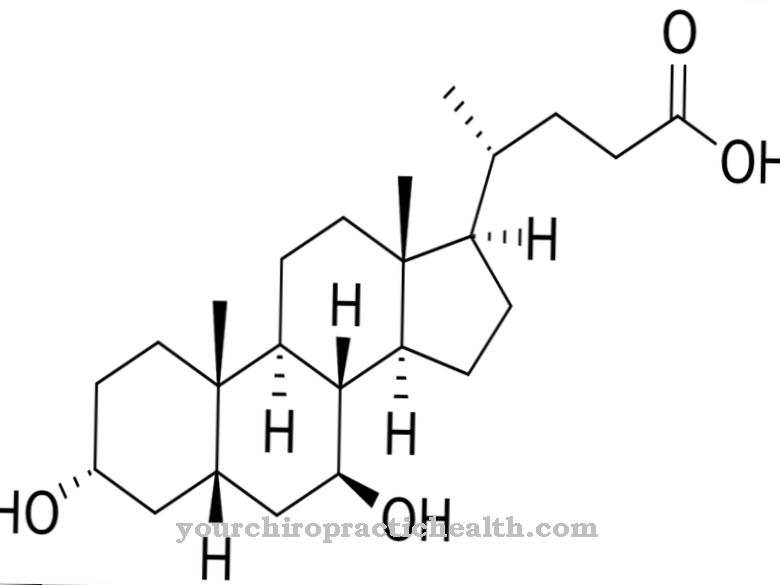Acitretin is used in the treatment of psoriasis and other diseases. Chemically, it belongs to the group of retinoids and is structurally related to vitamin A.
What is acitretin?

Acitretin is a derivative of retinol, the vitamin A. In addition to various influences on physical functions, vitamin A plays an important role in ensuring the health of the skin and mucous membranes.
Retinol ensures normal cell division in the skin and also prevents DNA damage in the skin cells. Because of its chemical relationship with retinol, acitretin has the same effect on skin growth and is therefore used as a medicine for skin diseases, especially psoriasis.
It is used by taking acitretin-containing capsules, whereby the released active ingredient has a regulating influence on certain abnormal processes in the skin. While acitretin cannot cure the skin conditions, it can fight the symptoms of unusual cell division activity.
Pharmacological effect
As already explained, regulated Acitretin the rate at which skin cells divide. Psoriasis is a skin disease that is based on a dysregulation of new cell formation in the skin.
There are many causes of psoriasis. In addition to genetic factors, autoimmune reactions and drug influences play a role. It is a systemic disease that ultimately manifests itself in a disordered and accelerated rate of cell division of the skin cells. Healthy skin renews itself within 28 days through cell division. The horny layer-forming cells (keratinocytes) reach the surface through the skin and become horny cells. When washing or rubbing, the dead horny cells are removed well.
In psoriasis, the keratocytes divide more intensely, while the conversion into horny cells is shortened to 3-5 days. Both processes cause intensive flaking. Acitretin regulates the uncontrolled proliferation of skin cells and at the same time ensures that the new cells mature slowly.
Acitretin also has a direct effect on the cornea. This effect is already noticeable after a few days of treatment. However, the underlying mechanism is not clear. After stopping the medication, the process starts all over again. This alleviates the symptoms, but does not change the disease process itself.
Medical application & use
The main area of application of Acitretin is the treatment of severe forms of psoriasis when other treatments no longer work. The drug is administered orally in the form of capsules.
The active ingredient has a bioavailability of approx. 60 percent and is 99 percent bound to plasma proteins in the blood. The half-life of acitretin in the body is approximately 49 hours. A dose above 10 mg per day is most effective. Depending on the body weight, there is an optimum effect of around 50 mg per day. It should be noted that the effect occurs after 4-6 weeks at the earliest.
After 2-3 months the symptoms completely disappear in 80 percent of cases. However, the cause of the disease remains, so it is purely symptomatic treatment. Further indications are indicated for severe, but in some cases rare, skin diseases.
These include diseases with severe eczema, genetic skin diseases and certain types of cancer, such as basal cell carcinoma or cutaneous T-cell lymphoma. These diseases can only be treated symptomatically with acitretin.
Risks & side effects
As with most medications, this occurs when using Acitretin possibly side effects. The use of this drug during pregnancy and breastfeeding is absolutely contraindicated because acitretin has a highly teratogenic (teratogenic) effect.
Since overdoses, as with vitamin A, can also cause symptoms of poisoning, the use of acitretin should be avoided in liver diseases, lipid metabolism disorders, diabetes, kidney insufficiency and, of course, hypersensitivity to the active ingredient.
Combined use with tetracyclines (broad-spectrum antibiotics) or methotrexate (immunosuppressive cytostatic agent) is also particularly contraindicated. Even with permitted use, undesirable effects such as dry mouth, rhinitis, nosebleeds, dry skin, visual disturbances and increased cholesterol and liver values can occur. Long-term therapy can lead to ossification. In addition, the use of acitretin increases the skin's sensitivity to the sun.
























.jpg)



